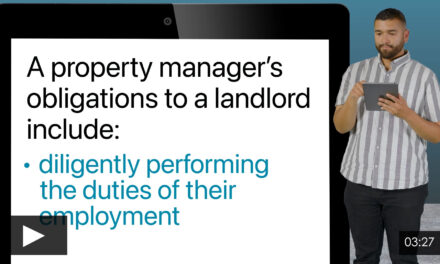Richard Cordray has resigned as director of the Consumer Financial Protection Bureau (CFPB).
The CFPB was breathed into existence by the Dodd-Frank Wall Street Reform and Consumer Protection Act of 2010. In particular, Dodd-Frank has tightened regulations on the banking and lending industry.
Since Republicans gained control of the House and the Senate (not to mention the presidency), the CFPB has been on the chopping block. Most recently, in October 2017, the Senate stepped in to block a CFPB rule banning mandatory arbitration in certain consumer agreements, a move which Cordray said was “a giant setback for every consumer in this country.”
It’s uncertain whether Cordray resigned in protest of his power as chief consumer watchdog being reigned in — or if other factors motivated him. But it is clear that with Cordray’s exit, Republicans will happily appoint their replacement to serve their deregulatory agenda.
The future of regulation looms over the housing market
Dodd-Frank has vastly changed the landscape of the U.S. housing market. Real estate professionals, including agents and brokers as well as lenders and appraisers, do business differently today than before Dodd-Frank.
It has been on the top of Republicans’ wish-list to dismantle Dodd-Frank for years. Now, with control over the major legislative bodies, they are eagerly getting to work.
When Trump first was elected, there was some speculation that he might do away with the CFPB altogether. Now it appears he will settle for removing the teeth from the Bureau by appointing a director friendly to Republicans’ deregulatory goals.
For the housing market, deregulation will mean a return to the excitement of the Millennium Boom — and the deep depression that followed.
The thinking behind a deregulated market is that bankers and Wall Street in general will regulate itself. After all, it’s in their best interest to avoid the risky actions that led to the last financial crisis, right?
Not really. One thing Wall Street bet on — and received — was a government bailout when their assets proved worthless. Turns out, their risky lending and trading behaviors that puts homeowners in a very dangerous position pay off no matter how the dice falls.
Real estate agents can prepare by watching for signs of deregulation gone bad in their local markets. This includes watching for predatory lending and unlawful foreclosure actions.



![Career Manual: Your Guide to Personal Branding and Income Enhancement [e-book]](https://journal.firsttuesday.us/wp-content/uploads/CareerManual_Cover-440x264.jpg)











I only read articles by this author to play spot the shallow liberal politics that are always contained. Otherwise the analysis is worthless.
Your article was appreciated until your politics intervened.
A big part of operating in a deregulated Market becomes Realtors and mortgage brokers asking themselves a question that they have previously refused to do. That is, can my client actually afford the loan and house for which they have been approved. Not just, as has been the case, can we make the deal close. If they could do that, it would provide brakes on a situation that otherwise is inevitably again going to spiral out of control.
That’s not really the broker’s, or loan officer’s, job. Every loan product comes with a s___ load of guidelines. The originator, whomever he is, submits the loan to underwriting having first satisfied himself that it meets qualifying. The underwriter then puts the package through the test to see that it meets ALL required guidelines for approval. The question of whether or not this borrower could afford this loan was answered long before the loan officer met the borrower and long before the underwriter got her assignment to underwrite 5 loans a day. That question came up before the product development team, who did their research based on economic studies made by housing experts and Ph.D’s in economics. Real Estate experts chimed in too. These people are all very smart but they can’t predict the future. And in the early part of the 21st century few of us were able to predict Alan Greenspan. Yes there are dishonest brokers, and dishonest car salesmen. But the car salesman didn’t build the Edsel, Ford did.